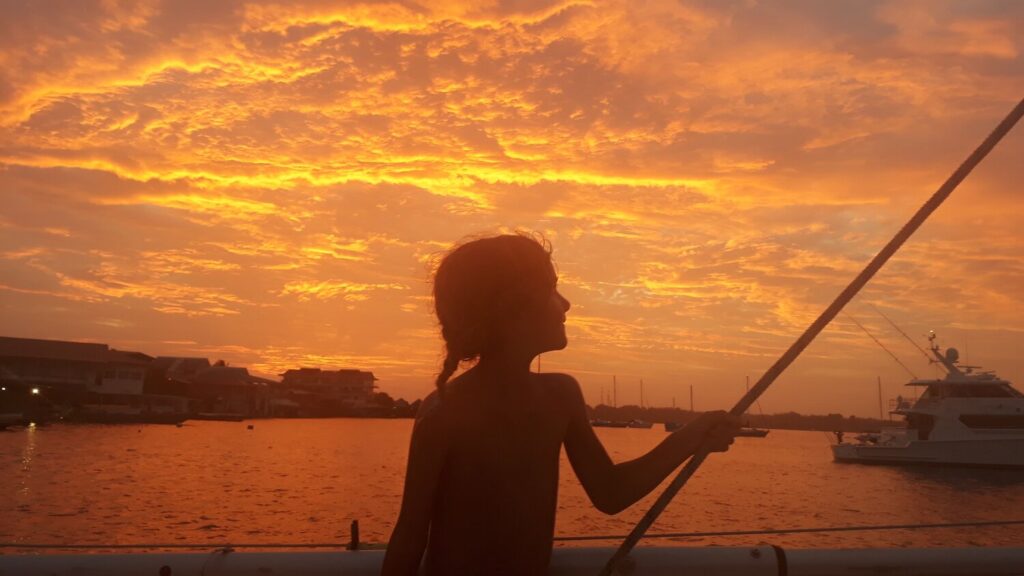
Sailing Across the World
After 6 years of living in Europe, with a 9 to 5 job (or 7 to 18.30 if you include the commute), it was high time for us to move out of the rat race, into the unknown. Desperate for more time together as a family, we started planning.
We sold our belongings, purchased a blue water sailing yacht, and started a slow trip around the world in order to provide our (then) 4 year old daughter with a world education. In search of a happier, healthier life, we combine online work and home schooling with exploring remote areas that are inaccessible without a boat.
Our quest lies in crafting a self-sufficient life in tune with nature, full of wonder and amazement; making enough money to support our nomadic exploits; embracing a minimalistic, low carbon footprint lifestyle and providing a solid base for our daughter’s growth to independence.
Looking back at 4.5 years of memorable experiences, it was one of the best decisions we ever made. We’ve lived in Greece, kit out our boat in Malta, travelled in Tunisia, Sardinia, the Balearics, Spain, Portugal, the Canary Islands, Cabo Verde, across the Atlantic, on to Martinique, Dominica, Antigua, Dominican Republic, Jamaica, Panama and Columbia.
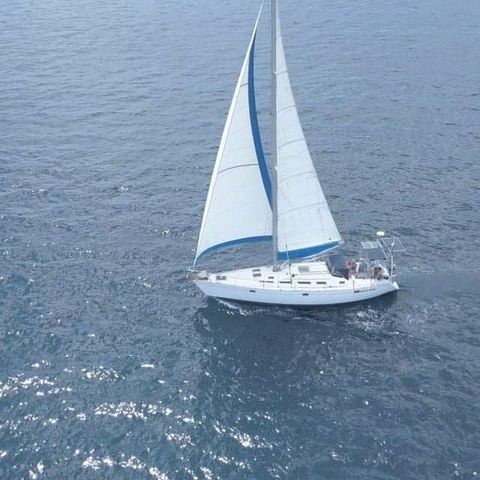
Packing and Preparations
The most important preparation for converting to digital nomadism lies in adopting a different mind set. The rest follows from that. For us, it means giving up the confining sureties of the social safety net with its promises of a pension. In exchange you get the freedom to decide your own workload, income, and division of time. It was our conscious decision to shift to earning sufficient money to live off and make the most of our time on earth, as well as staying mentally and physically fit so we can work until old age.
We are not new to an off grid life and acquired various useful skills in repairing, maintenance, and homesteading during prior adventures (travelling overland with an old 4×4 from Europe to Africa, renovating houses, living and running businesses in Africa, off road travelling with young kids, starting a kindergarten on a remote island, …).
In addition, those previous experiences taught us it is crucial to take care of your own health and know the basics of health care provision. We do not have health insurance or other insurance as the coverage is minimal in our preferred remote destinations and local public health care is cheap for the few times we need it. E.g. For our family, in the past 4years, our doctor visits totalled 4.
As our whole starting point is to travel for the sake of our children, we opted for a minimum amount of comfort and a stable environment. Our 44 foot yacht is completely self-sufficient and allows us to travel in the comfort of our home (with mini-office and classroom included ☺). Internet is as easy as buying a new sim-card in each country you visit and finding the best and fastest data package that covers your on-board needs.
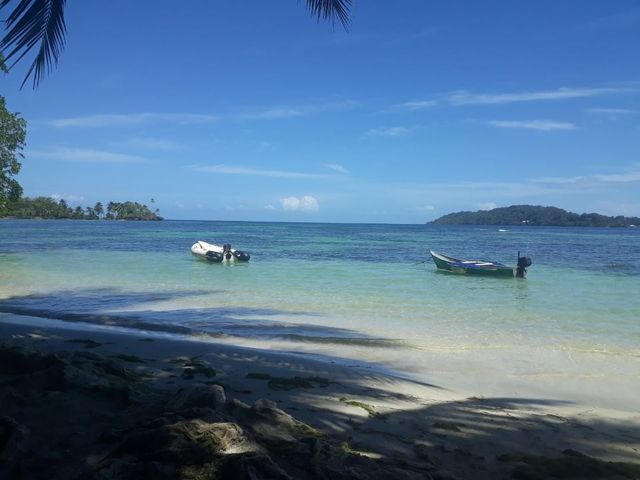
Taking Care of the Kids
I have been homeschooling our daughter since 2016. I don’t have a teaching degree, only a keen interest in child development and common sense.
Luckily, there are great online resources. From the start, we enrolled in Time4Learning, an online curriculum that provides tutorials and exercises on all topics for every grade, and ReadingEggs. We supplement the online teaching with workbooks and lots of fun projects, elected by the student. Project work is a great way to stimulate the interests of your child and allows them to better absorb the required knowledge in a shorter time-span. We often work with other sailing kids from different ages on the same project, assigning each one a small part to research and bring the result to ‘class’. On top of that, a fair amount of teaching happens informally, when the occasion arises.
It’s important to select a framework that suits your family’s needs and invest time to incorporate school in your normal routine. Predictability reduces the feet-dragging and long-faces to a minimum. Less time is wasted on negotiating and from an early age on your child learns the difference between ‘work’ and ‘play’. Soon all family members are ‘working’ at the same time therewith creating those quiet times needed for work and school.
At a preschool/ kindergarten age, consider taking turns to educate the kids. For instance, mom teaches math, language and artwork, dad does music, science and sports. In that way you can spread the load and both get some work done. We used to have a home-made day-planner with drawings depicting the sequence of activities planned for that morning.
Looking back at 4.5 years homeschooling, I’m very impressed with the result, and can only say:
- Do not stress about schooling. It is completely unnecessary. Don’t compare yourself with impressive blogs of dedicated home schoolers. Your child will benefit immensely from the one-on-one support and will do the required work in no time. Even if something takes them longer than the norm, there is enough time to master each topic.
- Don’t beat yourself up when things don’t go as planned. The educator and the student both go through a learning curve to find what works then and there and have to adjust to their new roles. Go easy on yourself and your child as fear and stress are poor motivators. Take a deep breath, try again, talk it through. Many kids struggle with dyslexia, attention, and dyscalculia. Read up on those topics. There is a wealth of information out there. Early detection and a good plan aids greatly.
Digital Nomad Work-Family Balance
Getting the work-family balance right when your home doubles as office and school, all within the confined spaces of a monohull, sounds challenging. Yet, we manage. Mornings are work time for all, afternoons are reserved for exploring, activities, sports, and shopping.
We have gone through phases with different set-ups, depending on the demands of the jobs and the available resources. For instance, we used to do schooling on shore to allow the one that was doing the most stressful work sufficient headspace. Or, there have been times that trading happens at night.
For over a year now, we have found a good balance to all work in the same space at the same time. As I am the main educator, and my 8year old can work independently for short spells but requires supervision, I tend to do only light work, preparation, and things that allow multi-tasking in the morning. Counselling and serious writing happen in the afternoon or at night.
If you are not in the same line of business, try to communicate clearly about what you need from your family members, discuss deadlines/ stressors, create clarity on who is working when, etc. There are heaps of practicalities to take into account.
When your kids are small, it can be exhausting. You can use the nap times to complete focused tasks. Do not despair if you struggle to get anything done and end up working late at night when the house has gone quiet. With every year that passes, your child gains more independence. Keeping their minds stimulated not only reaches your goals for their education, it also creates more time for you to focus on deadlines. Teaching them to read is a big leap forward and makes life easier as you can select reading for them and let them work by themselves for increasingly longer periods.
Cost of Living for a Digital Nomad Family
The cost of living differs vastly depending on which countries you reside in, your chosen transport and accommodation and the living standard you pursue. In the case of sailing digital nomads, you have a large initial investment to purchase a (second-hand) sailing yacht and all the kit required to make it a liveable cruising boat (solar panels, wind generator, water maker, low energy fridge-freezer system,…). We paid in full for our boat and upgrades and as we spend most of our time on anchor, we can live relatively cheap.
Our cost of living consists of food, maintenance, and travel documentation (visa, entry and clearance cost). We buy fresh produce at local veg shops and markets. We eat local food, which has the advantage of being cheaper, fresher and healthier. Most meals are home-made as we both enjoy cooking and socializing. We shop wisely, compare prices between stores, and don’t mind going to several shops to complete our shopping list. All those pennies you save add up. We keep a tight budget.
When you live on a boat, you have to cart every single item you use from shore and your trash back to shore. This increases your awareness of what you buy and how it is wrapped. Before we left, we were already well versed in recycling, but after 4.5 years on board we have taken repurposing and upcycling to a new level. We are proud of our minimalistic, eco-friendly lifestyle and are always happy to improve. For instance, we recently found a way to use every part of a pineapple (fruit for breakfast, head to plant, peel to make vinegar or tepache), we make our own body wash from soap bars, a hydrating body gel from seaweed and essential oils, a home-made non-toxic bug spray, as well as mosquito candles…
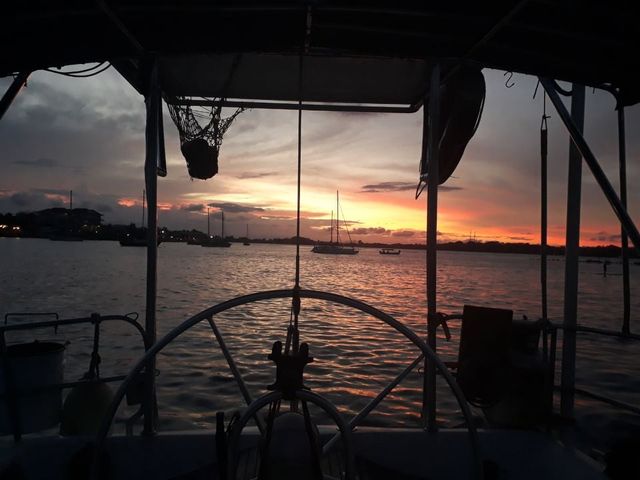
Obstacles and Challenges
Every expat, travelling, and digital nomad family has their story to tell about obstacles to overcome, whether it is unsupportive family, missing their relatives and friends, finding a work-life balance or managing resources.
My biggest challenge was losing the court case to have my two sons with me. The judge ruled they can only visit during the holidays. It is no easy feat to maintain a good long-distance relationship with them, fulfilling my parental role and remaining one of the most important educational influences for them despite the distance and sabotaging from other parties. But we make it work.
Another big hurdle is earning enough money consistently to make it work financially. My husband is a day trader and has gone through a steep learning curve before it became a steady source of income. As for me, I’m an online psychologist and writer. Being on the road has the disadvantage that the normal steady flow of referrals from your network is reduced. Before Corona, people were reluctant to engage in online therapy. The pandemic changed that and got people more accustomed to online work. The downside is that the numbers of content writers and psychologists on the online market have drastically increased.
One of the practicalities of being a digital nomad is that you need good internet to function and that this impacts your travel plans. For us, it means that staying at the most remote untouched areas can only happen over weekends or when we take a break. Also, in some countries it has been challenging to find decent, affordable mobile data-packages that cover our need for fast, flawless internet. It has happened that we decided to shorten a stay just because the internet wasn’t good enough for us to work on.
How did the experience impact you and your family?
As mentioned at the start, my family unanimously agrees that this was the best decision we could have made. We are free to go where we please. There are no governments, police officers or bureaucrats telling us what to do. We take care of ourselves. We are in charge of our own health and life. It can be daunting and stressful, but that is a small price to pay. We try to make the best decisions and bear the consequences if we don’t. We are more in touch with nature, calmer, happier.
As a family, we spend a lot of quality time together. We share the highs and lows of every day. There is no running away on a sailing boat. You get to know the good and bad of the different characters on board intimately. We are a strong team. For sure, at times we get irritated with each other but we also spend the best times together. We have weathered many storms and it just made us stronger.
The prerequisite for that is honesty and communication. Although we share the same values, we all have different skill sets and assets and we don’t necessarily see everything the same way. So, it takes a lot of talking things through, making sure we are all on the same page and being honest with yourself and your family about what you think and feel.
Apart from that, I consider it an absolute privilege to be able to grow along with my children. I am much more in tune with their development (instead of being distracted by the hustle and bustle of modern western life) and feel I am offering a valuable contribution to their development and well-being.
Recommendations
A word of advice for those digital nomads that are thinking about starting a family or families considering the digital nomad lifestyle:
- Kids are never a reason not to do something like this. Plenty of people hide behind “now I have kids I can’t do this anymore”. Kids do not need a luxurious house with 2 cars, a flat screen TV, and gourmet food to live. They need parents that care for them, feed them, provide them with a safe place where they can feel at home (which should be the family itself rather than a location) and educate them. If you can manage that, they’ll happily follow you around the world and grow into wise, independent, capable adults. There are thousands of families that prove that.
- Before jumping in the deep end, think it through. Consider what you want to get out of the digital nomad family lifestyle and verify all family members share your ideas and wish to contribute to the common goal. Plan it out. How will you make money? How long will it take you to build up a client base that provides enough income? You might have to work towards being location independent via a stepped process. Choose what is right for your family (nobody can decide that for you) at that moment and in the foreseeable future. Make a good plan and stick with it, yet be flexible enough to adapt. If one family member is not having fun, get to the root of it, learn and find a better balance. Once you’ve got the plan right, work as a team to make it come through. Be ready to resolve practicalities and problems.
- Choose this lifestyle for the right reasons. Do your homework. Don’t believe the cliché’s of the digital nomad on a permanent holiday, lounging around the beach during the day, partying hard at night. Most digital nomad families have busy but interesting and energizing lives.
Best Family Memory
The best family memory? That is so difficult to answer as there are too many experiences to choose from:
Was it that time out freediving and snorkelling where I was following a peculiar looking fish down to 7meters and I realised the strange sound behind me was my 7year old? Or when she swam down with dad to greet a gentle mature nurse shark?
Do I pick that huge pink moon rising out of the ocean, like an alien space shuttle on a crossing? The trail of luminescent jellyfish left in the wake of the boat? Or rather that time when we went for a refreshing swim in the purple-blue water off the continental shelf with a few kilometres of water under us and had to swim very hard not to lose our moving boat? Or is it the warm scented air that welcomes you and meets your nostrils as you approach new land?
Surely my daughter would pick one of those get-togethers with other kiddies’ boats, where they have fun and play non-stop with kids of all ages and language groups. Or the dolphins giving us a 45min show of their talents during passage.
One could argue for the big things, like witnessing a pod of at least 200 pygmy killer whales chasing their breakfast in the bay where we were anchored (Cabo Verde), with us riding out in the dinghy and filming them up close.
Or for the small stuff, like playing with the bioluminescent algae during our frequent nocturnal family swims in the warm Panamanian waters. It is the closest my daughter and I get to being fairies and sprinkling fairy dust around.
In this kind of life, beautiful family memories are made every day. We are grateful for our choices.
Written by Winnie Norval, online psychologist and freelance content writer

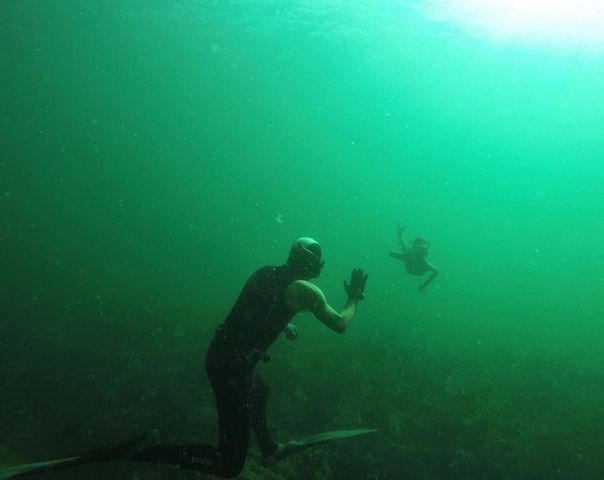
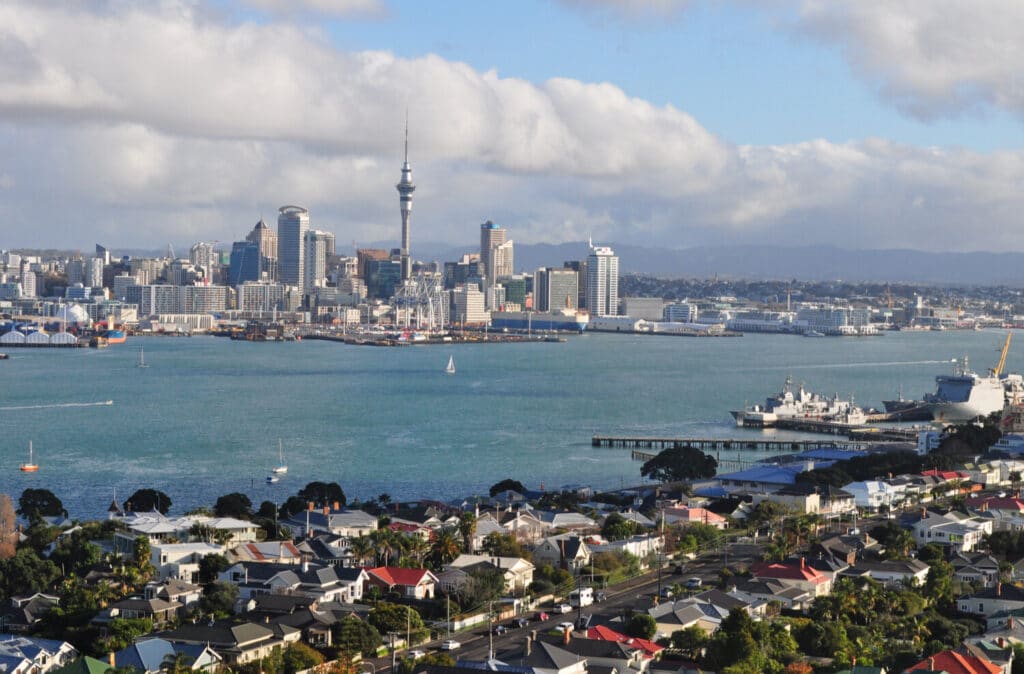
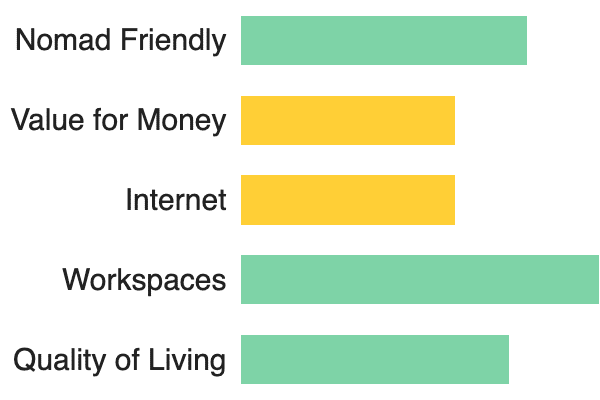
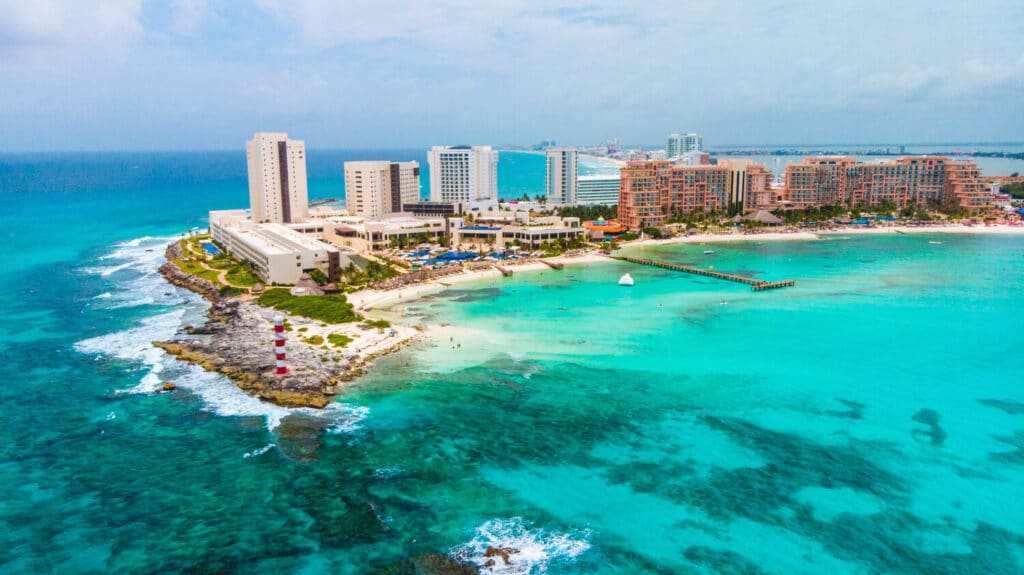
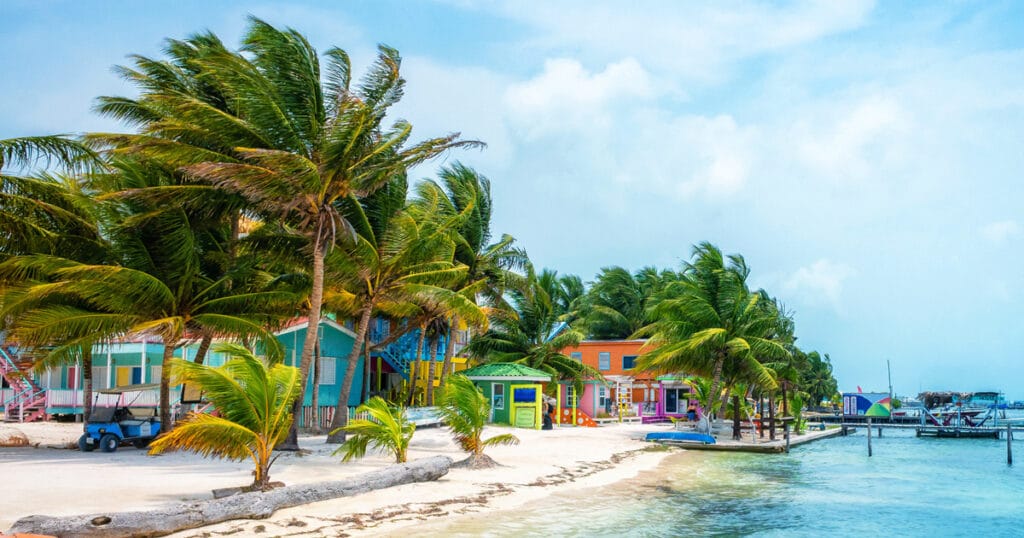
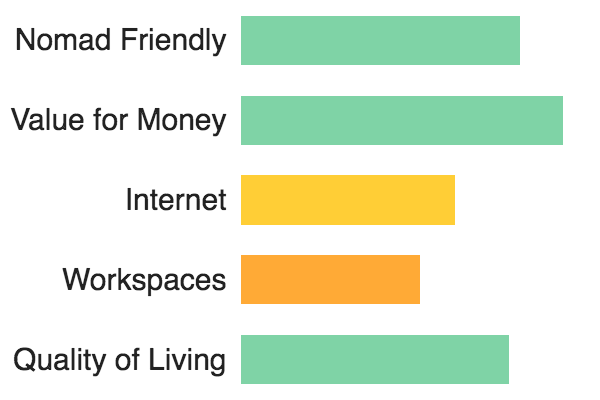

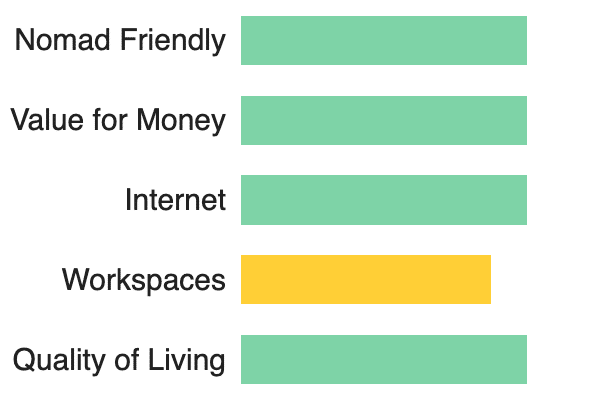
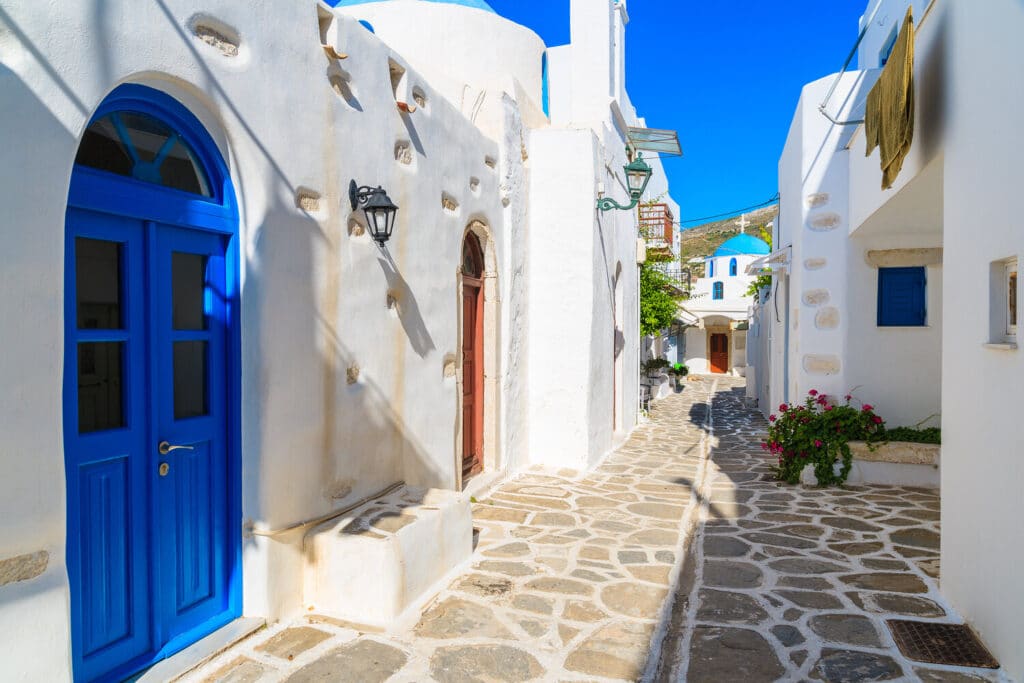
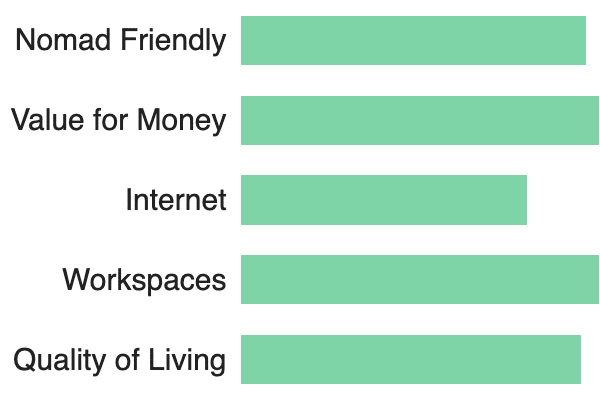

Wow. This article was the best few minutes I have spent in a very long time!! Thank you so much for the great info! You guys are really inspiring and I can’t wait to show this article to so many people!!!!!
Hey @GypSea, what an incredible way to live! I live and work from my laptop on a 27′ sailboat in the UK, and I just have to do this. How did you get past the hurdle of not having a residential address for the digital nomad permit, or did you just get up and go? With the 90 day rule I think this would be extremely difficult to do now without the it. I’d love to hear your thoughts on doing this in a post Brexit, post covid world.